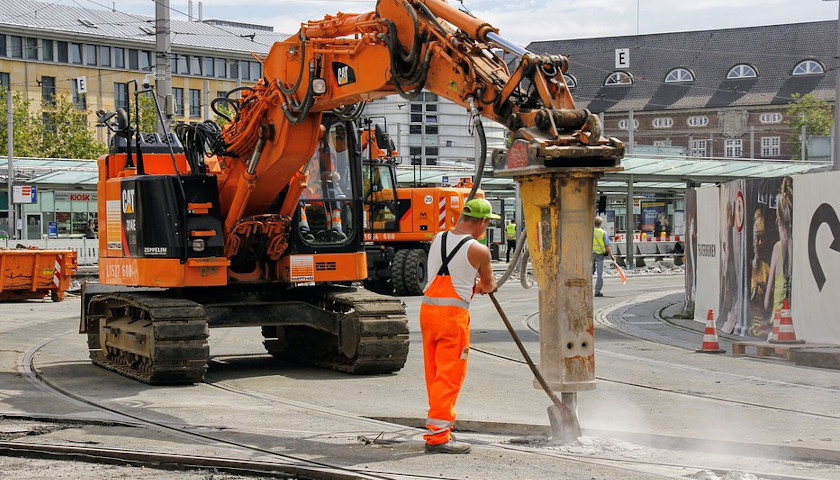by Andrew Trunsky
Senate Majority Leader Chuck Schumer and Vermont Sen. Bernie Sanders, the chair of the Senate Budget Committee, announced a $3.5 trillion deal on their infrastructure reconciliation package late Tuesday.
The deal is the first step to beginning the reconciliation process, which Democrats hope will allow them to bypass a certain GOP filibuster and pass the plan on a party-line vote. The package includes an array of Democratic priorities that face near unanimous Republican opposition, including billions for child care, climate change, and other forms of so-called human infrastructure, Schumer and Sanders said in a joint press conference Tuesday.
“We are very proud of this plan,” Schumer told reporters. “We know we have a long road to go … If we pass this, this is the most profound change to help American families in generations.”
 In addition to the human infrastructure provisions Democrats sought, the bill will also include money for Medicare to include dental, vision and hearing coverage. The expansions were a key goal for progressives, and Schumer endorsed them in June.
In addition to the human infrastructure provisions Democrats sought, the bill will also include money for Medicare to include dental, vision and hearing coverage. The expansions were a key goal for progressives, and Schumer endorsed them in June.
Other floated provisions include two years of free community college, paid leave and boosts toward the child tax credit, which Biden extended for a year in the American Rescue Plan.
Though Democrats have a Senate majority, the 50-50 split means that the plan almost certainly needs unified support from Schumer’s caucus to pass.
“The goal is for the Budget Committee to all be on the same page and then sell it to the caucus,” said Virginia Democratic Sen. Tim Kaine. “Once the Budget Committee is on the same page, numbers will start to come out. But we still have a little ways to go to get there.”
The bill is coupled with a smaller $1.2 trillion infrastructure framework that focuses mostly on physical infrastructure and has the support from several Senate Republicans and President Joe Biden. Schumer has said that Democrats will vote on both the bipartisan and reconciliation bills before the Senate leaves for its August recess, though he has not yet given specific days when they will do so.
Before the reconciliation bill gets a vote, Democrats need to be sure that moderates in their caucus like Sens. Joe Manchin of West Virginia, Kyrsten Sinema of Arizona and Jon Tester of Montana are fully on board. They have all signaled that they are open to a reconciliation bill, but have yet to endorse its $3.5 trillion amount.
Manchin told ABC News in June that a bill totaling “$1 trillion or $1.5 trillion or $2 trillion” is something “I would be voting for,” and told reporters earlier Tuesday that any plan had to be fully paid for.
“We need to pay for it,” he said. “I’d like to pay for all of it. I don’t think we need more debt.”
Even if Senate Democrats are in full agreement, the reconciliation process provides few guarantees that the bill will become law. Before a full vote on the bill the Senate must undergo two vote-a-ramas, marathon sessions where Republicans can offer numerous trivial or politically tricky amendments.
The bill and its provisions must also be approved by the Senate parliamentarian, since reconciliation is only allowed for budget-related legislation. In April, the parliamentarian said that a $15 minimum wage could not be included in a reconciliation bill, infuriating progressives who planned to pass it on a party-line vote.
– – –
Andrew Trunsky is a reporter at Daily Caller News Foundation.





